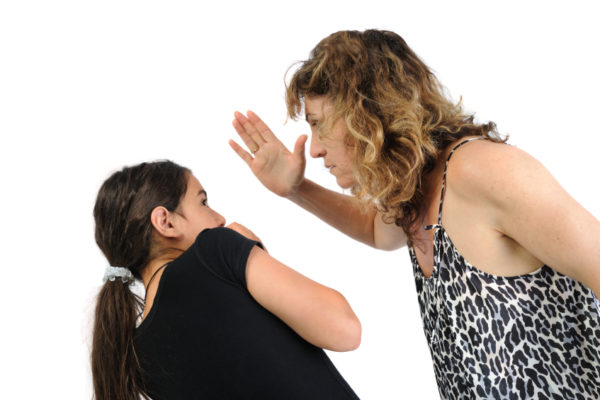Years of research have shown that spanking children is ineffective and potentially harmful. These facts have led the American Academy of Pediatrics to recommend that parents not spank, hit, or slap their children.
This statement from America’s leading group of pediatricians, with 67,000 members, is significant because parents trust pediatricians for discipline advice almost as much as they trust their own parents and spouses. So when pediatricians say not to spank, there is a very good chance that parents will listen.
That is a good thing, because we need to stop hitting our children in the name of discipline. And yes — spanking is just a euphemism for “hitting children.” We do not allow adults to hit each other, but for some reason American society has decided it should be legal and even desirable for adults to hit children. We need to end this double standard and provide children with the same protection from hitting that is given to all adults.
The majority of us who were spanked by our parents think we “turned out OK.” Perhaps we did. But maybe we were lucky that our parents did other things, like talking with us about what behaviors they wanted to see us do in the future, that helped us develop self-control and make good behavior choices. Given the dozens of research studies demonstrating that spanking increases the risk of harm to children, it seems that we “turned out OK” in spite of spanking, not because of it.
There are practical reasons to stop spanking. The main one is that it does not work. Some parents may say, “But it does for my child.” A child may cry and stop what she is doing in the moment, but numerous studies involving hundreds of thousands of children shows that spanking does not make children better behaved in the long run, and in fact makes their behavior worse.
It is hard for parents to see this in their day-to-day interactions, but in rigorous research studies we consistently find that the more a child is spanked, the more aggressive he or she will be in the future.
Spanking also teaches children that it is acceptable to use physical force to get what you want. It is thus no surprise that the more children are spanked, the more likely they are to be aggressive or to engage in delinquent behaviors like stealing.
Millions of parents have raised well-adjusted children without spanking. In one example, parents can “catch their children being good,” because praising children for good behavior is the best way to ensure that children will repeat those behaviors.
In order to see reductions in spanking across our society, we need changes in the social norm that hitting children is acceptable. We already view hitting adults as not acceptable, so we just need to expand that social norm a bit to include children. Changing social norms may be challenging in regions of the country, like the South, or in some communities, like conservative Christian denominations, which have strongly held beliefs about the necessity of hitting children to discipline them. These norms can be changed, but it will likely take time and many conversations about our collective goals for our children.
The good news is that incremental change in norms is slowly happening. Hospitals across the country are implementing “no hit zones” that do not allow hitting of any kind, including parents spanking children. City leaders in Stoughton, Wisconsin, and Madison Heights, Michigan, have made their cities into “no hit zones.”
Just like no smoking zones, no hit zones are enforced through social pressure to change behavior, not jail time. Initiatives such as no hit zones, especially if paired with education campaigns about effective discipline, are good steps to change the national conversation about spanking.
We can be the generation of parents who break the cycle of spanking and do better by the next generations of children. Let us teach them how to behave without spanking or hitting.
Elizabeth T. Gershoff is a professor of human development and family sciences at The University of Texas at Austin and an expert on the effects of physical punishment on children.
A version of this op-ed appeared in CNN Opinion.




